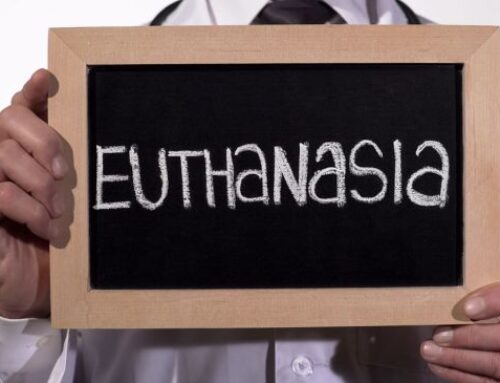The Quebec National Assembly passed a bill that effectively legalizes euthanasia and doctor-assisted suicide, a law pro-life groups say is dangerous and unconstitutional.
With the March election call killing Quebec’s Bill 52, which would have effectively legalized euthanasia and doctor-assisted suicide, pro-lifers, disabilities groups, and other opponents of the proposed law thought they had more time to work to defeat the bill. When the Parti Quebecois government was defeated by the Liberals, many opponents of euthanasia hoped the new provincial government would focus on economic issues and forget about Bill 52.
That didn’t happen.
On May 22, Quebec Premier Philippe Couillard re-introduced Bill 52, with identical language. Despite 25 Liberal MNAs voting against Bill 52 last year, the government’s new bill received unanimous support to continue the bill at the stage it was at when the previous legislative session ended when the election writ was dropped; it will not have to return to committee for hearings and a vote was rushed through.
On June 5, the National Assembly voted 94-22 to pass Bill 52.
Alex Schadenberg of the Euthanasia Prevention Coalition identified five main problems with Bill 52. Schadenberg said the bill defines killing by lethal injection as health care, thereby attempting to circumvent the federal Criminal Code prohibition on euthanasia, which is considered a form of homicide and part of federal jurisdiction. Also, the bill gives the doctor the right to kill the patients for physical or psychological suffering, but it does not define psychological suffering. Likewise, Bill 52 does not limit euthanasia to terminally ill people, extending it to individuals “at the end of life” but it does not define end of life.
Schadenberg also said the law “targets” people with disabilities, as Bill 52 states a person must be in “an advanced state of irreversible decline in capability,” which could include those with disabilities. Lastly, because the bill does not define “end of life,” euthanasia will be extended to people with disabilities.
The citizen network Vivre dans la Dignite-Living with Dignity and the Physicians’ Alliance Against Euthanasia, which together represent over 625 physicians and 17,000 citizens, also denounced Bill 52, saying it “invites legal challenges.” In a joint statement the two groups said they will challenge it as unconstitutional because “encroach(es) on federal jurisdiction over criminal law, as euthanasia constitutes a culpable homicide under our Criminal Code.”
Marc Racicot, a lawyer with Vivre dans la Dignite, told the Toronto Sun, “I will not say when we will go to court, but we are going to go to court.”
Toujours Vivant–Not Dead Yet, which represents people with disabilities, said they were “deeply troubled” with the law. “Many activists with disabilities believe the new bill will be disastrous in combination with the budget cuts announced by the Liberal government,” said Amy Hasbrouck, the organization’s director. She said with cuts to health services, “people with disabilities will find themselves sick, desperate and without any choice other than to die.”
A spokesman for federal Justice Minister Peter MacKay responded on May 23 to the re-introduction of Bill 52: “Our government believes that the provisions of the Criminal Code prohibiting assisted suicide and euthanasia are used to protect all people, including the most vulnerable people in our society.” As Schadenberg noted, the statement used “the terms euthanasia and assisted suicide, rather than end-of-life care.”
A spokesman with the Ministry of Justice told the Toronto Sun the federal government opposes the Quebec law. “It is our government’s position that the Criminal Code provisions prohibiting assisted suicide and euthanasia are in place to protect all persons, including those who are most vulnerable in our society,” Paloma Aguilar told the paper. “Furthermore, in April 2010, a large majority of parliamentarians voted not to change these laws, which is an expression of democratic will on this topic.”




